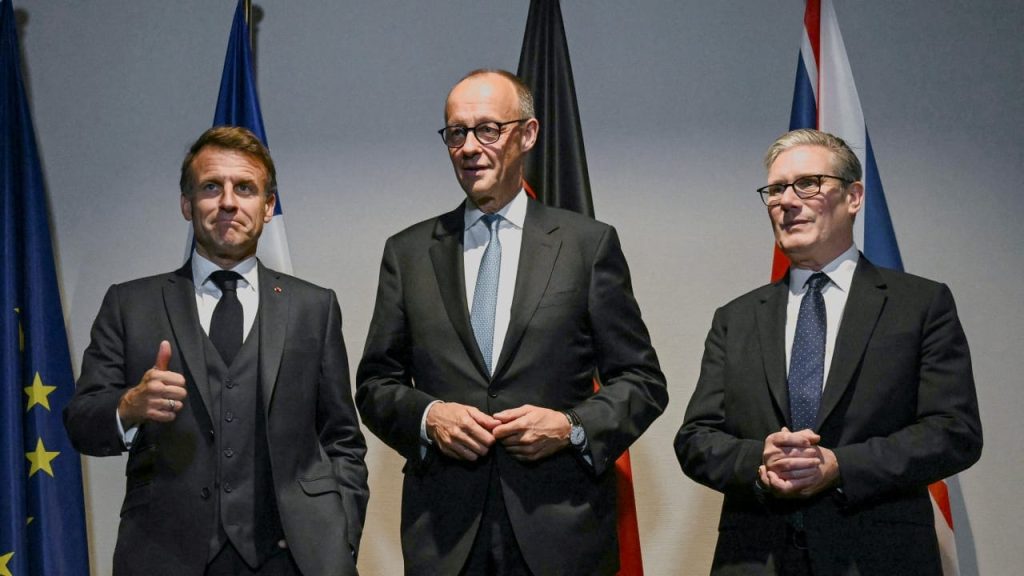UK, France, and Germany Urge Iran to Meet Conditions to Delay UN Sanctions

Britain, France, and Germany have urged Iran to fulfill three key conditions to postpone the reimposition of United Nations sanctions, aiming to allow time for negotiations over Tehran’s nuclear program.
The three nations, collectively known as the E3, issued a joint statement at the United Nations ahead of a closed Security Council session. This came just a day after they triggered a 30-day process that could lead to the reinstatement of UN sanctions due to Iran’s continued nuclear activities.
The E3 stated they would be willing to delay the sanctions—referred to as a “snapback”—for up to six months if Iran agrees to three steps: restoring access for UN nuclear inspectors, addressing issues related to its enriched uranium stockpile, and engaging in discussions with the United States.
“Our asks were fair and realistic,” said Britain’s UN Ambassador Barbara Woodward, reading from the statement. “However, as of today, Iran has shown no indication that it is serious about meeting them.”
“We urge Iran to reconsider this position, to reach an agreement based on our offer, and to help create the space for a diplomatic solution to this issue for the long term,” she added, flanked by her German and French counterparts.
In response, Iran’s UN Ambassador Amir Saeid Iravani dismissed the E3’s proposal as unrealistic.
“They are demanding conditions that should be the outcome of negotiations, not the starting point, and they know these demands cannot be met,” he said.
Iravani instead called on the E3 to support “a short, unconditional technical extension of Resolution 2231,” the measure that formally endorsed the 2015 nuclear deal, which lifted international sanctions in exchange for restrictions on Iran’s nuclear program.
Russia and China Propose Diplomatic Path Forward
Russia and China have put forward a draft resolution to the Security Council that would extend the 2015 agreement for six months and encourage all parties to immediately resume negotiations. While their initial version included language that would block the E3 from reimposing sanctions, that provision has since been removed.
Iravani welcomed the Russian-Chinese proposal, calling it a sensible step to allow more time for diplomacy. Any resolution would require at least nine votes in favor and no vetoes from the five permanent members: the US, UK, France, China, and Russia.
Meanwhile, UN nuclear inspectors have returned to Iran for the first time since Tehran halted cooperation following attacks on its nuclear facilities attributed to Israel and the US. However, Iran has not yet agreed on terms for fully restoring its work with the International Atomic Energy Agency.
